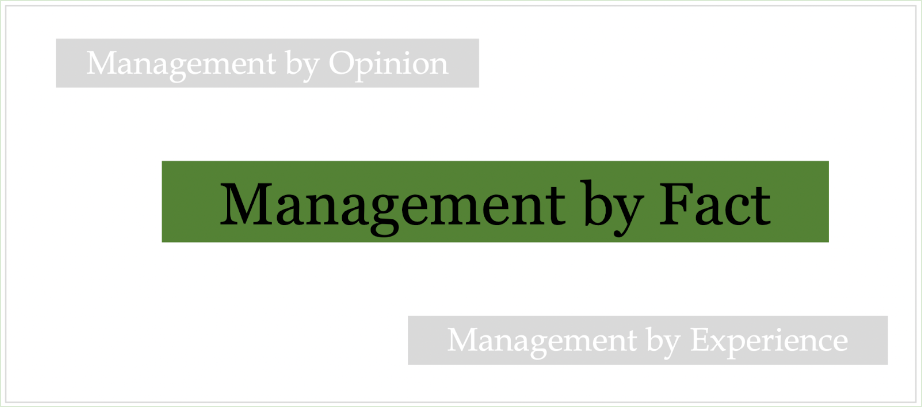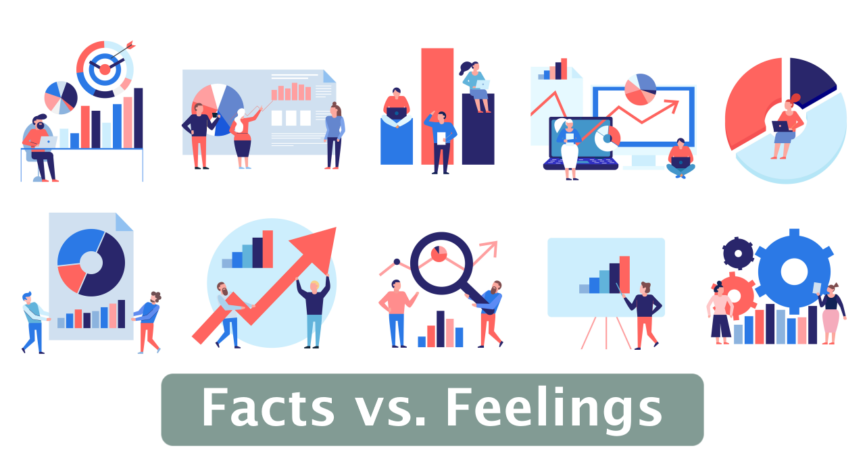Facts vs. Feelings
‘Management by Fact’ is one of the hallmarks of high-performing organizations. It is about understanding, with data, where you are, how things are progressing, and determining the most appropriate way to intervene to improve performance.
As leaders, we must “extract larger meaning from data and information to support evaluation, decision-making, improvement and innovation” (Baldrige Criteria for Performance Excellence).
Being a fact-based leader is about understanding how to use data to manage.
Understanding:
- what is most important
- what data to collect
- how to examine the data
- how to interpret signals from the data
- how to determine when to intervene
- and when it is best not to intervene at all!
All in all — how to make decisions and determine actions based on data, rather than on opinion or just past experience.
Many organizations ‘manage by opinion’. In this style of management, when faced with a situation, a group is brought together for a discussion about the situation at hand. Everyone gives his or her opinion about what should be done. This type of management approach can involve very lengthy and heated debates, oftentimes without a clear conclusion. If a decision is reached, it may be because a person had the loudest voice, or someone was very persistent and wouldn’t ‘back down’, or it was deferred to the most senior leader in the room when the time ran out.
‘Management by experience’ is a bit better than managing by opinion. This style of management brings together people who have had experience in the area under discussion. However, people’s experience in the topic area may be dated, particularly if the people discussing it are leaders. They are not intimately involved with the current daily practices. For example, a senior leader’s direct experience in the area may be dated as they have focused the last several years in leadership roles. Therefore, ‘management by experience’ may not be reliable for finding the best solutions.

‘Management by fact’ is one of the values in high-performing organizations (Baldrige Excellence Builder 2021-22). Understanding what data is needed, gathering the data, and then properly interpreting the data to come to a decision or best action. One’s experience comes into play when interpreting the data and evaluating possible solutions; therefore, involving those with the most relevant experience is key. In an excellent organization, the bias is towards fact-based management and involving those closest to the situation.
A lot of our time as a leader and manager should be looking at data to determine if there is a need to improve performance. Then bringing together the right group of individuals, with the most current and relevant experience, to interpret the data and determine the best solution.
For many leaders, consistently managing this way will be a change.
A change, when done well, that can significantly improve performance results.

If you’d like to receive these Inspirations in your inbox every other week, you can subscribe to Kathy’s Excellence Advantage Inspirations Newsletter.
Kathy Letendre, President and Founder of Letendre & Associates, advises organizations and leaders to create their excellence advantage.
Contact Kathy by phone or text at 802-779-4315 or via email.

